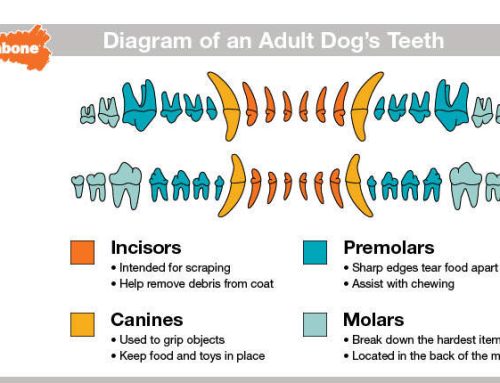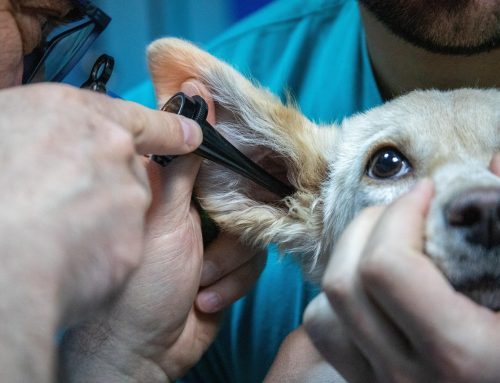
Table of Contents
- When Do Puppies Stop Growing?
- How Long Does It Take For Puppies To Grow?
- Do Small And Large Breed Puppies Grow At The Same Rate?
- When Do Puppies Stop Growing In Height Versus Weight?
- Does Nutrition Affect Puppy Growth?
- Why Do Some Puppies Stop Growing Early?
- How Do I Know If My Puppy Has Reached Full Size?
- When Should I Switch My Puppy To Adult Food?
- Do Male And Female Puppies Grow At The Same Rate?
- Can Spaying Or Neutering Affect Puppy Growth?
- Do Mixed Breed Puppies Follow The Same Growth Patterns?
- Can Growth Problems Be Prevented?
- 9 Months to 2 Years Depending on Breed and Size
When Do Puppies Stop Growing?
Watching a puppy grow is one of the most rewarding parts of being a dog owner. Those floppy ears, clumsy paws, and bursts of energy eventually give way to a more mature and steady companion. But every pet parent eventually wonders: when do puppies stop growing? The answer depends on a few factors, including breed, size, nutrition, and overall health.
How Long Does It Take For Puppies To Grow?
Most puppies grow rapidly in the first 6 months of life. During this stage, they can gain weight and height almost daily. According to the American Kennel Club (AKC), small-breed dogs typically finish growing sooner than large or giant breeds. While a small dog like a Chihuahua may reach full size by 9–12 months, giant breeds like Great Danes may continue to grow until they’re 18–24 months old.
Do Small And Large Breed Puppies Grow At The Same Rate?
No. Breed size plays a huge role in determining growth timelines. Small breeds (like Dachshunds, Yorkies, or Maltese) are usually done growing between 9–12 months. Medium breeds (like Beagles or Border Collies) generally reach adult size around 12–15 months. Large breeds (like Labrador Retrievers or Golden Retrievers) may keep growing until 15–18 months. Giant breeds (like Great Danes or Mastiffs) can continue developing until 18–24 months. This difference is why growth charts from PetMD are often broken down by weight class instead of exact breed.
When Do Puppies Stop Growing In Height Versus Weight?
Puppies usually reach their full height before they reach their full weight. For example, a Labrador might reach near-adult height by 12 months but continue to “fill out” in muscle and chest size for several more months. This is especially true in large and giant breeds, where the frame develops first, and body mass comes later.
Does Nutrition Affect Puppy Growth?
Yes. Proper nutrition is one of the most important factors in healthy growth. Puppies need diets designed specifically for growth, with the right balance of protein, fat, vitamins, and minerals. Feeding an adult dog formula too early may not provide enough calories or nutrients, while overfeeding can lead to obesity and orthopedic problems. The ASPCA recommends sticking to high-quality puppy food until your vet confirms your dog has reached maturity. Switching too soon may interfere with healthy bone and joint development.
Why Do Some Puppies Stop Growing Early?
If your puppy seems to have stopped growing earlier than expected, it may be due to genetics, poor nutrition, or health issues. Worm infestations, underlying illnesses, or joint problems can all affect development. In rare cases, hormonal issues such as growth disorders may also play a role. If you’re concerned, a veterinarian can run tests and help ensure your puppy is on track.

How Do I Know If My Puppy Has Reached Full Size?
There are a few signs your puppy is nearly done growing: their paws and ears no longer look oversized compared to their body, growth spurts become less noticeable, weight gain slows down and becomes steady, and they transition from clumsy movements to more coordinated behavior. Your vet can also estimate adult size based on breed standards, growth charts, and even X-rays of bone growth plates.
When Should I Switch My Puppy To Adult Food?
Most vets recommend switching from puppy food to adult dog food once your dog has reached about 80–90% of their expected adult size. For small breeds, this could be as early as 9 months. For large breeds, it may not be until 18 months or more. Always check with your vet before making the switch.
Do Male And Female Puppies Grow At The Same Rate?
Not always. In many breeds, male puppies grow slightly larger and may take longer to reach full maturity compared to females. The difference is often more noticeable in medium to giant breeds, where males may be taller, heavier, and take a few extra months to fill out completely.
Can Spaying Or Neutering Affect Puppy Growth?
Yes, spaying or neutering can influence growth. According to AKC, dogs that are fixed before their growth plates close may grow taller than they would have otherwise, because hormones play a role in signaling when bones stop lengthening. This doesn’t necessarily harm the dog, but it’s something to discuss with your vet when deciding the best time for surgery.
Do Mixed Breed Puppies Follow The Same Growth Patterns?
Mixed breed puppies can be trickier to predict. Their growth rate and final size often depend on which parent’s genetics are stronger. A vet can usually provide an estimate based on the puppy’s weight at certain ages, but exact timelines may vary.
Can Growth Problems Be Prevented?
Many growth problems can be minimized with proper care. Feeding your puppy high-quality food, ensuring they get exercise appropriate for their age, keeping up with vaccinations, and visiting your vet regularly all help ensure healthy development. Preventing obesity in puppies is especially important, as extra weight can strain growing bones and joints.
9 Months to 2 Years Depending on Breed and Size
So, when do puppies stop growing? It depends on size and breed, but anywhere from 9 months to 2 years is normal. Small dogs reach adulthood faster, while giant breeds may take twice as long. Nutrition, genetics, spay/neuter timing, and overall health all play a role, which is why regular vet checkups and a proper diet are key. Puppyhood may not last forever, but with the right care, you’ll raise a healthy dog that’s by your side for years to come. For more detailed puppy growth information, check out trusted resources like the American Kennel Club, PetMD, and ASPCA Puppy Care.






